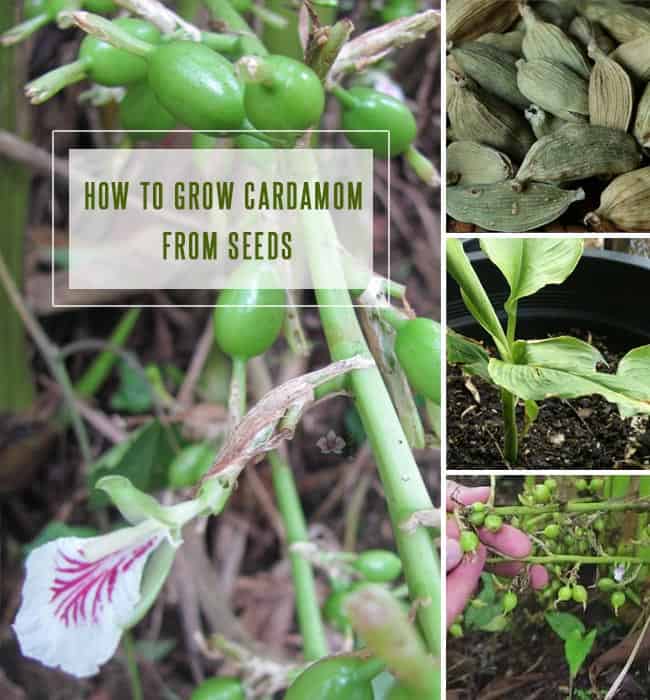How to Grow Cloves : Tips and Advice
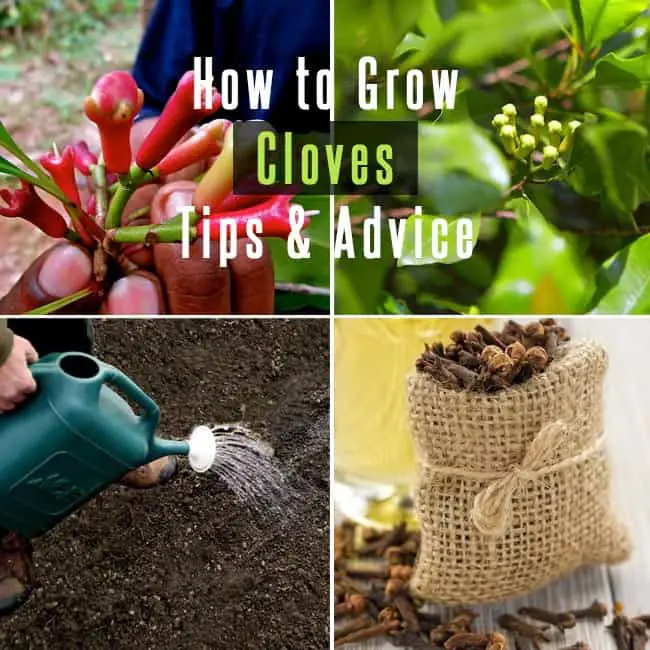
This guide will teach you on how to grow cloves, one of the world’s most popular spices. Clove has a strong and intense flavor. The spice is derived from the dried flower buds of an evergreen tree, which grows more than eight meters high. When maintained well, the tree can live up to more than 100 years.

Image Credit: Indesso
The clove flower buds could change over the course of five to six months, from greenish to pinkish red. Afterwards, they are picked and dried under the sun. Its flower buds are waxy and it has leaves and flowers that’s similar to an Australian gum tree. When the buds are dried, a brownish black color will be produced that also contains a volatile oil. This oil is called Eugenol and is also found in Basil, which is responsible for the aromatic nature of the spice.
In addition, there is also a long list of clove plant medicinal uses, which is one of the reasons why so many people are interested to grow this plant at home. Read on to find out how to grow cloves at home.
Growing Cloves at Home
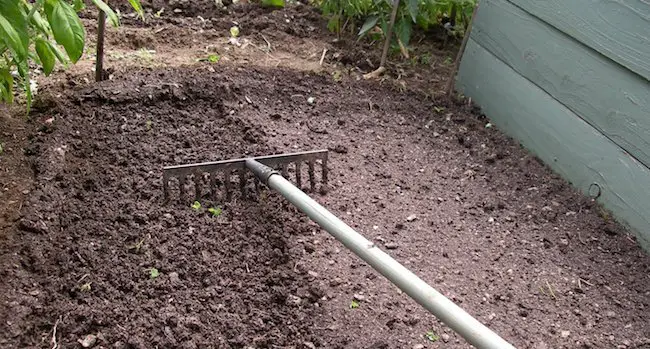
Image Credit: Plentific
Growing cloves will require a humid subtropical or tropical climate. A constant temperature above 50 degree Fahrenheit must be maintained. Furthermore, areas with temperate zones is the perfect place to grow the trees outdoors. It is also possible to grow the plant in a pot but proper care must be observed. This is especially true during winters. When growing indoors, you can try a terrarium style of growing. Just make sure that the potting mix will be able to drain well enough.
You can grow the clove from cutting and seeds. Seeds that were harvested recently should be used for seed propagation. Seeds that were dried out are not viable since these will no longer germinate.
Plant the seeds immediately as soon as you purchase them. It is not necessary to cover the seeds with soil. It must be planted by placing them directly above the soil. The seed tray or pot should then be covered with a plastic sheet to improve the humidity of the soil.
Seed germination will take up to six weeks and it is important to note that the seedlings are very delicate and slow growing. Some gardeners will recommend letting the plant to dry out the day before they are transplanted in order to keep its fragile root ball stay intact.
Also Read: 21 Amazing uses of Epsom Salt for Gardening
Requirements for Growing the Cloves
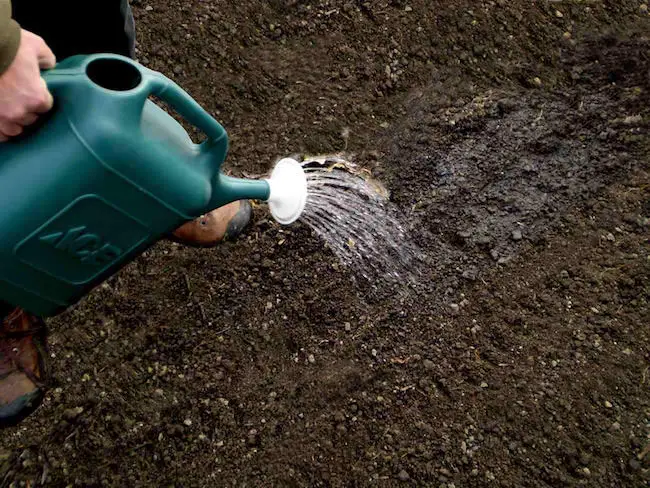
Image Credit: Hatfield Peverel Allotment Association
In order to successfully grow the clove tree, it must be planted in a tropical climate. In addition, the tree can thrive better in a semi-shaded area, just like the black pepper. When growing cloves, it is important to know that the plant cannot withstand a temperature that’s below 32 degree Fahrenheit and therefore, it should not be planted in areas that experiences harsh winters and cold.
Although it is possible to grow the clove tree in subtropical areas, it might not produce flower in cooler temperatures. This is because the plant needs a temperature that’s above 10 degrees Celsius in order to thrive. It also requires consistently high humidity in order to grow. As mentioned, the plant can be grown indoors or in a greenhouse, as long as you keep the level of humidity high.
The soil used for planting the clove tree should be rich and loamy. It must have proper drainage and contain lots of organic matters. Since the tree grows in wet tropics, it will require constant watering. This is especially important during the first three to four years of the plant. Over watering should be greatly avoided.
Apply 50 kg compost or manure along with fish meal or bean meal each year. Organic fertilizer is usually being applied at the start of the rainy season on areas where clove is being cultivated. As soon as the plant will start growing, apply fertilizers including potassium sulfate.
As for diseases, the plant could suffer from leaf rot, wilt and leaf spots. Scales, stem borer and mealybugs are among the pests that tend to attack the clove tree.
Harvesting the Cloves
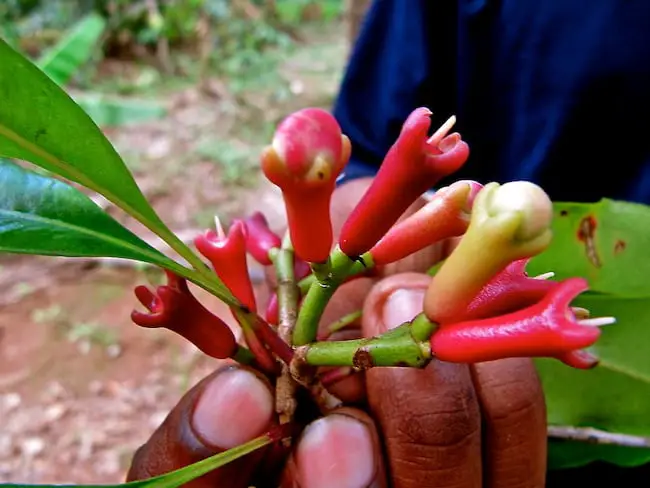
Image Credit: Blogspot
When it comes to learning how to grow cloves, you should know that the cloves you use as a spice is actually the result of the harvest of dried and unopened flower buds. The tree will start to produce flowers after six years after planting. However, it will take up to 20 years for it to reach its full bearing stage.
Since the unopened flowers are not used to make the spice, the unopened buds are being harvested right before they become pink and if they are plump an rounded. During this time, the buds are less than two centimeters long. Harvesting should be carefully done so as not to damage the branches.
Once picked, the buds are dried under direct sunlight. In some cases, they are dried in hot air chambers until such time that they will produce a darkened to dark brown color while the rest of the flower bud is in slight brown color.
The buds and stems of the cloves are dried separately. The stems are also being used for oil distillation. To dry, spread the buds in a dry and clean mat and leave to dry fully. They must be dried immediately after picking since they have the tendency to ferment quickly. Rake the buds regularly in order to achieve a uniformed reddish brown shade.
Also Read: How to Grow Chickpeas
Clove Plant Medicinal Uses and Benefits
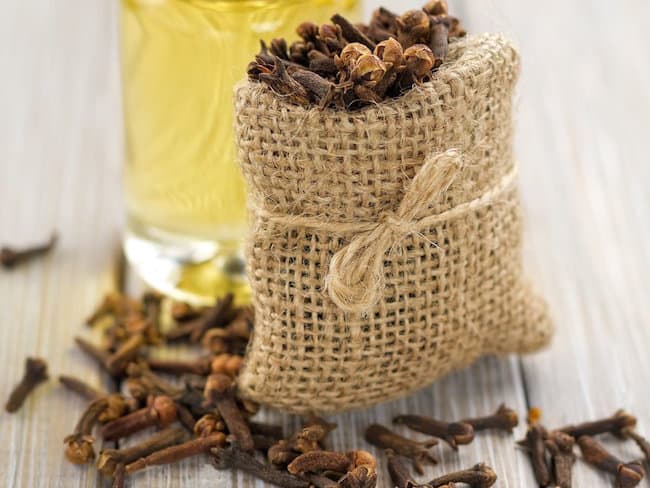
Image Credit: Organicfacts
Clove is widely used for its intense aroma, which is used as an ingredient for soaps, toothpaste, detergents, perfumes, mouthwashes and creams. This is also due to the presence of antiseptic properties in cloves. Moreover, because of its preservative and aromatic properties, the clove is also being added in some alcoholic beverages, soda and condiments to meat and various cuisines. In Indonesia, clove is used as an ingredient of cigarettes, along with tobacco and mint. Aside from these, there is also a long list of clove plant medicinal uses and some of these are below.
• Disinfectant for teeth and oral cavity. Clove can fight microorganisms, including bacteria, fungi and all kinds of viruses. It also contains anesthetic and analgesic properties.
• Used in traditional Ayurvedic medicines and ancient Chinese medicines due to its anti-fermentation and antiseptic properties.
Additionally, Clove is also effective at treating various digestive disorders. Among these are abdominal pain, dyspepsia and bloating. And because Clove is antiseptic, it is also effective at treating sore throat.
Important Things About Clove
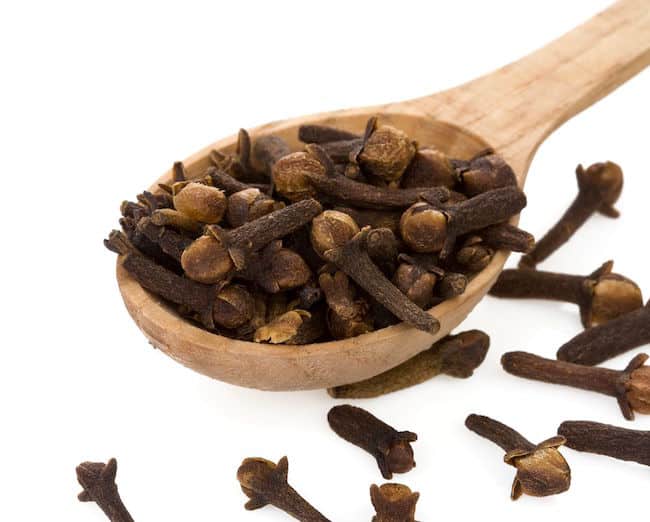
Image Credit: The Spruce
When growing cloves for personal use, it is important that you know several important things about it. First of all, the clove oil is very concentrated and could cause adverse effects on your sensitive skin. Therefore, the oil must be used in moderation or diluted in water. It is not also advisable to use the clove oil when you are pregnant. To ensure your safety, consult your doctor first before you decide to use cloves.
Final Thoughts
If you follow these tips on how to grow cloves at home, especially the requirements needed, then growing the tree successfully is just easy.

